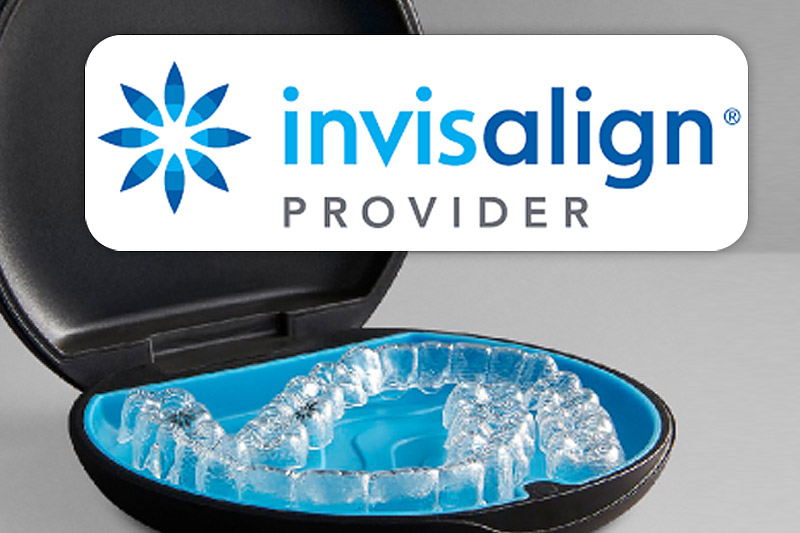Tag: dental implants dentist watertown
Dental Implant Treatment – Common Questions | Watertown MN
What can I expect during dental implant treatment planning?
The qualified dentist will:
1. Physically examine the gap in your mouth where you’re planning to get a dental implant placed.
2. Capture the necessary dental imaging including X-rays, CT scans, and/or panoramic films in order to assess the quality and quantity of jawbone.
3. Review your medical history for things like infections, allergies, bleeding disorders, existing medical conditions, and medications to ensure that you’re healthy enough to undergo dental surgery and heal and recover properly
4. Carefully plan your dental implant placement procedure
How can you help me relax for the surgical procedure?
During all your surgical procedure appointments, the dental surgeon will administer a local anesthetic to numb the surgical site, as well as any sedatives that you may require to calm your anxiety and make you comfortable.
Is bone grafting necessary?
If the site has sufficient bone tissue after tooth extraction, the implant may be placed immediately without bone grafting. But if there’re signs of bone loss, the dentist may place a cadaver or synthetic bone at the site in order to build up the bone tissue and achieve a solid base to support the implant. This process is referred to as alveolar bone grafting, and takes 2-6 months to heal before you can proceed with implant placement.
Can implants be placed in the upper jaw?
Though there is insufficient bone tissue in the upper jaw, especially in the back where the maxillary sinus is located, dental implants can still be successfully placed after building up the bone tissue with sinus augmentation or sinus lift procedure.
How safe are dental implants?
First, you should note that dental implant placement has been used in dentistry since the 1950s. Second, implants tend to be very successful with a success rate of 98%, and are even considered the standard of care for replacing missing teeth.
For more information on dental implants in Watertown MN and to find out the cost of your individual treatment, please contact us today.
Best Value for Dental Implants in Watertown MN
Dental implants tend to cost a lot more than alternative tooth replacement treatments such as dentures and dental bridgework. This cost can partly be attributed to the requirement of a skilled oral surgeon to perform the procedure, as opposed to a general dentist. As a surgical procedure, it also requires careful planning to eliminate any risks and ensure successful treatment. Moreover, dental implants often require additional procedures such as tooth extraction, bone grafting, sinus augmentation, crown placement, and so on depending on the position of the implant, individual treatment plan, and the patient’s general health. All of these factors add to the final cost of dental implants placement.
Generally, there is a variety in the price range for a single dental implant. This amount is distributed across service costs, cost of all components involved in the procedure, and the cost of the replacement crown.
A costly dental implant procedure may involve the following steps:
- Tooth or teeth removal – to remove any tooth fragments during site preparation.
- Bone grafting – If the implant site has signs of bone loss after tooth extraction, your oral surgeon may recommend bone grafting to build up the bone tissue and achieve a solid base to support the implant. Bone grafting in the upper jaw is known as sinus augmentation or sinus lift
- Titanium Implant placement – A titanium post will be inserted into the jaw bone using a special drill and tools, and a “healing cap” placed over the implant before stitching up the gum.
- A temporary denture will be placed at the site for aesthetic purposes during healing
- Abutment placement – It is connected to the implant using a screw
- Crown fabrication – Impression of the abutment will be obtained and sent to a dental lab to fabricate your custom crown.
- Tooth replacement – When the crown is ready, it will be secured to the abutment by cementing or with a screw.
How Much Will the Insurance Pay?
In the cost breakdown above, dental insurance providers only accept to pay for the replacement crown. This is because dental implants are considered an elective procedure by most dental insurance providers, even though it has become a standard of care for tooth replacement.
For more information on dental implants in Watertown MN and to find out the cost of your individual treatment, please contact us today.
Affordable Dental Implants Near Me, Watertown MN
Dental implants are now the preferred option for replacing missing teeth because they use a conservative technique that doesn’t damage surrounding healthy teeth, like bridgework, and provides predictable results. However, getting a single dental implant carnage in prices depending on a variety of factors, including:
- The position of the implant site in the mouth
- The experience of the oral surgeon performing the procedure
- The location of the dental practice
Getting dental implants is also a lengthy process, so the cost will be distributed across the various steps including:
Tooth or Teeth Extraction
This is usually the first step of your dental implant surgery. Unless you had the tooth/teeth professionally removed, there is a high likelihood that the site of the dental implant will still have some pieces of the damaged tooth present. Any tooth fragments must be completely removed to allow for proper site preparation before placing the dental implant.
Bone Grafting / Sinus Lift
If the implant site has signs of bone loss after tooth extraction, your oral surgeon may recommend bone grafting to build up the bone tissue and achieve a solid base to support the implant. This takes 2-6 months to heal before you can proceed with implant placement.
Surgical Implant Placement
When the site is ready, a dental implant (titanium post) will be placed into the bone using a special drill and tools. The surgeon will then place a “healing cap” over the implant before stitching up the gum.
Temporary Crown
You will have to wait for 2-6 months for the site to heal and the implant to integrate with the bone tissue. A temporary denture will be placed at the site for aesthetic purposes.
Abutment Placement
After successful integration of the implant to the bone, an abutment will be connected to the implant using a screw.
Crown Fabrication
A general dentist can then take an impression of the abutment and send it to the dental lab to fabricate your custom-made crown. Keep in mind that the choice of material for your crown will also affect the cost of your dental implant treatment.
Tooth Replacement – When the crown is ready, it will be secured to the abutment by cementing or with a screw
For more information on dental implants in Watertown MN and to find out the cost of your individual treatment, please contact us today.
Dental Implant Benefits in Watertown MN
Since the invention of implant dentistry in the 1950s, dental implants have provided patients with a more reliable option to replace one or more missing teeth permanently, allowing them to enjoy the same long-term stability and ease of maintenance associated with natural teeth.
Getting a dental implant for a tooth replacement gives you a similar feeling to having a natural tooth because it stands firmly alone without requiring the support of adjacent teeth like dental bridgework. In fact, dental implants can be used to support other tooth replacements, like bridgework or dentures if you’re missing multiple teeth. Dental mini-implants can also function as temporary anchorage devices for moving crooked teeth with an orthodontic appliance, after which they’re extracted when the orthodontic treatment is completed.
Dental Implants are Good for Your Oral Health
Although there are other dental procedures that can be used to replace teeth or straighten them, dental implants are actually beneficial to your oral health in the following ways:
- Maintain the Structure of Your Teeth, Jaw, and Face – A dental implant will help to prevent the teeth adjacent to the gap from tilting or shifting, which may cause your bite to shift. The teeth on the opposing jaw may also grow irregularly because there’s no mate to make contact with, causing you to injure the gum tissue in that area and create a chronic sore spot. Moreover, the bone tissue under the gums may begin to shrink away (resorption) due to lack of stimulation during chewing, causing your face to appear aged. Implants can prevent this by integrating with the jawbone and providing stimulation when chewing.
- Conservative Restoration – Dental implants stand on their own without depending on the support of surrounding natural teeth, as is the case with dental bridgework. Implants are anchored to the jawbone, and do not affect existing healthy teeth.
- Safe – The implant is made from biocompatible materials like titanium, which fuse to the jawbone through a process known as osseointegration, without triggering any allergic reactions.
- Natural Look and Feel – Since implants integrate to the underlying bone tissue, they are so stable that they look and feel like your natural teeth. You can continue to eat your favorite foods without any worry and practice your usual oral care routine.
Learn More About Dental Implants
Dental implants were invented in 1952. With the progress of science and technology in dentistry over the decades, the outcomes of dental implant surgical placement have improved greatly, producing a success rate of over 98%. To find out whether dental implants in Watertown MN are right for you, please visit your dentist today.
Tooth Implant Process in Watertown MN
What tests are carried out during dental implant consultation?
1. Physical examination – The dentist will physically examine the gap in your mouth where you’re planning to get a dental implant placed
2. Digital imaging – X-rays, CT scans, and/or panoramic films are required to assess the quality and quantity of jawbone
3. Medical history review – Your dentist will also review your medical history by assessing any infections, allergies, bleeding disorders, existing medical conditions, and medications before proceeding with the treatment.
How do you manage pain during the procedure?
During all your surgical procedure appointments, the dental surgeon will administer a local anesthetic to numb the surgical site, as well as any sedatives that you may require to calm your anxiety and make you comfortable.
Can I switch from another tooth replacement to dental implants?
The other tooth replacement options are dental bridgework and removable dentures. Dental bridgework is a permanent restoration that should serve you satisfactorily for many years. But if your removable dentures keep slipping due to a poor fit, then you may consider getting implant-supported dentures to improve their stability.
If the implant site has signs of bone loss after tooth extraction, your dentist may recommend bone grafting to build up the bone tissue and achieve a solid base to support the implant. If grafting is to be done in the upper jaw at the back where the sinus cavity is located, the procedure is known as sinus augmentation. Bone grafting takes 2-6 months to heal before you can proceed with implant placement.
Can problems occur during implant placement?
The 98% success rate of dental implants is attributed to careful planning, which involves making sure that the patient is healthy enough to undergo dental surgery and heal and recover properly. But whenever a surgical procedure is involved, there is always an element of risk and potential complications to the success of the treatment or the patient. Your dentist will work with you to ensure a safe and successful procedure.
For more information on dental implants in Watertown MN and to find out the cost of your individual treatment, please contact us today.
Dental Implants – Associated Costs | Watertown MN
Many dental professionals today consider dental implants as the standard of care for tooth replacement. Yet, most dental insurance products do not cover the entire cost of dental implant placement because they consider dental implants as an elective procedure. That said, your insurance provider can cover the cost of getting a replacement crown depending on the material you choose for fabrication.
During your consultation, your dental team will discuss with you the expected treatment plan and total cost of getting dental implants. Generally, there is a variety in the price range for a single dental implant. The actual amount depends on:
- The position of the implant site in the mouth
- Experience of the oral surgeon performing the procedure
- The location of the dental practise
- Cost of the replacement crown
- Complexity of your case – affects cost of dental services and dental materials consumed
Costs Associated with Complex Dental Implants
The standard procedure for performing a dental implant includes:
- Tooth or teeth removal and site preparation before placing the dental implant.
- Implant placement – A dental implant (titanium post) is placed into the bone using a special drill and tools. The surgeon will then place a “healing cap” over the implant before stitching up the gum.
- Monitoring visits – You will have to wait for 2-6 months for the site to heal and the implant to integrate with the bone tissue. A temporary denture will be placed at the site for aesthetic purposes. You will need to visit your oral surgeon or dentist to track your recovery and make sure that there is no infection.
- Abutment placement – After successful integration of the implant to the bone, an abutment will be connected to the implant using a screw. Then an impression of the abutment is taken and sent to the dental lab to fabricate your custom crown.
- Tooth replacement – When the crown is ready, it will be secured to the abutment by cementing or with a screw.
But if the implant site has signs of bone loss after tooth extraction, your oral surgeon may recommend bone grafting or sinus augmentation to build up the bone tissue and achieve a solid base to support the implant. This takes 2-6 months to heal before you can proceed with implant placement. During this time, you will need to make regular dental visits for tracking your healing.
Get Dental Implants Today
Although dental implants are expensive, and the treatment takes several months before you can start enjoying your investment, the final result is extremely satisfying. Dental implants look, feel, and function like your natural teeth, and after treatment, you won’t need to see your dentist for follow-up visits, except for routine professional cleaning.
For more information on dental implants in Watertown MN and to find out the cost of your individual treatment, please contact us today.
Who Is A Good Candidate for Dental Implants? Watertown MN
If you have lost most or all of your teeth due to advanced gum disease or decay, it will become nearly impossible to maintain the function of your mouth, whether it’s eating or speaking properly. Your smile will also be affected. In such a case, your dentist may recommend a tooth replacement solution such as removable dentures or dental implants. That said, there is a high likelihood that you will want dental implants to be included in your treatment.
To Replace One to Several Teeth
If you have gaps between your teeth, a dental implant will help to prevent the teeth adjacent to the space from tilting or shifting, which may misalign your bite. The teeth on the opposing jaw may also grow irregularly because there’s no mate to make contact with, causing you to injure the gum tissue in that area. This can create a chronic sore spot and discomfort. Moreover, the bone tissue under the gums may begin to shrink away (resorption) due to lack of stimulation during chewing, causing your face to appear aged. Dental implants can prevent these issues.
To Replace Teeth in the Entire Upper or Lower Arch
Innovations in the use of dental implants have led to the discovery of a placement technique known as “All-On-4” that provides a stable and comfortable prosthesis using only four implants to support tooth replacements in the entire upper and/or lower arch. The implants are placed in strategic areas that have sufficient bone structure, providing firm support for dentures to be screwed on permanently. The result is stable teeth replacements that feel and function like your natural teeth.
Are You a Good Candidate for Dental Implants?
There are several factors that may affect your suitability as a candidate for dental implants, including:
- Position of the missing tooth in the mouth
- Quality and quantity of jawbone in the area with the gap
- General health of the patient
- Cost of treatment
If you have one or more missing teeth, dental implants can provide you with a stable replacement that looks and feels like your natural teeth, so you can continue to eat your favorite foods without any worry and practice your usual oral care routine.
To learn more about dental implants in Watertown MN and how they can help to restore the function and aesthetic of your mouth, please visit your dentist today.
Dental Implant Treatment – Common Questions in Watertown MN
What can I expect during dental implant treatment planning?
The qualified dentist will:
1. Physically examine the gap in your mouth where you’re planning to get a dental implant placed.
2. Capture the necessary dental imaging including X-rays, CT scans, and/or panoramic films in order to assess the quality and quantity of jawbone.
3. Review your medical history for things like infections, allergies, bleeding disorders, existing medical conditions, and medications to ensure that you’re healthy enough to undergo dental surgery and heal and recover properly
4. Carefully plan your dental implant placement procedure
How can you help me relax for the surgical procedure?
During all your surgical procedure appointments, the dental surgeon will administer a local anesthetic to numb the surgical site, as well as any sedatives that you may require to calm your anxiety and make you comfortable.
Is bone grafting necessary?
If the site has sufficient bone tissue after tooth extraction, the implant may be placed immediately without bone grafting. But if there’re signs of bone loss, the dentist may place a cadaver or synthetic bone at the site in order to build up the bone tissue and achieve a solid base to support the implant. This process is referred to as alveolar bone grafting, and takes 2-6 months to heal before you can proceed with implant placement.
Can implants be placed in the upper jaw?
Though there is insufficient bone tissue in the upper jaw, especially in the back where the maxillary sinus is located, dental implants can still be successfully placed after building up the bone tissue with sinus augmentation or sinus lift procedure.
How safe are dental implants?
First, you should note that dental implant placement has been used in dentistry since the 1950s. Second, implants tend to be very successful with a success rate of 98%, and are even considered the standard of care for replacing missing teeth. re.
For more information on dental implants in Watertown MN and to find out the cost of your individual treatment, please contact us today.
How Dental Implant Restorations Can Enhance Your Smile in Watertown MN
Whether you are missing a tooth or have several teeth that are beyond repair, restoring your smile will not only have a positive effect on your self-confidence but also your oral health. This is why many dentists now offer restorative dental procedures to improve their patients’ smiles for healthier teeth and gums. With dental implant restorations, your cosmetic dentist will be able to replace your missing or decayed teeth with natural-looking implant technology that look and feel like your natural teeth.
How Do Dental Implant Restorations Work?
An implant can be thought of as a replacement for the root of a missing tooth. It is placed into the bone, covered, and then allowed to heal/ integrate with the surrounding bone. Once the area has healed, your dentist may place a crown or bridge that resembles your natural teeth. Common procedures that use implants to provide a durable and natural function include:
- Implants may be used to support a free-standing crown.
- Implants may be used to support fixed bridgework.
- Implants may be used to help retain a removable appliance (denture or partial).
- Implants may be used to support a full-mouth reconstruction.
It is important to consult with a qualified cosmetic dentist to determine if implant restorations is a possible solution for your smile. Your dentist will examine your teeth and gums to verify that implants will improve your oral while enhancing your smile. Ultimately, you will discover the best procedure to restore your smile and boost your confidence. To get started, contact your oral surgeon in Watertown MN to schedule your consultation today!
Dental Implant Dentist Near Me, Watertown MN
Dental implants are arguably the best solution for missing teeth. When you have a severely damaged or decayed tooth that cannot be saved with a crown or root canal therapy, then your dental implant dentist in Watertown may recommend that it be completely removed.
Unfortunately, any spaces left unfilled between your teeth cause adjacent teeth to shift towards the gap, causing bite misalignment and other problems. In addition, without the tooth root to stimulate the underlying bone tissue, the jawbone may begin to lose mass and strength (bone atrophy), which makes your face shrink and look older. If your dentist recommends tooth extraction, he/she will also suggest an appropriate tooth replacement option to prevent this from happening.
What to Expect
A dental implant is surgically placed in the jawbone and allowed to fuse with your natural bone, creating a firm foundation for the replacement tooth. Singular implants can be used to replace one missing tooth or to support bridgework for 2 or 3 missing teeth. Multiple implants can also be placed at appropriate intervals to support dentures and keep them from slipping when eating and talking.
Dental implants are the only restorative option that stops bone atrophy after tooth loss. A dental implant comprises three parts:
- Titanium post – that is surgically placed into the jawbone
- Abutment – used to attach the post to the crown
- Crown – section of the tooth above the gum line that is connected to the post via the abutment
Who is the Right Candidate for Dental Implants?
Although the success rate of dental implants is high, at over 96%, the right candidate should:
- Have good overall health with no signs of gum disease, tooth decay, or jawbone degeneration
- Have sufficient jawbone tissue to support the posts
- Have no conditions that put you at risk of surgical procedures, like over bleeding
If you don’t have enough bone tissue to support an implant, the dental dentist in Watertown may recommend a bone regeneration procedure to build up the base for the implant. This will, however, increase the duration of your dental implant treatment from the usual 4-6 months.
It is important that you discuss with your cosmetic dentist in Watertown about your candidacy for dental implants.

New Patient Exam Xrays and Regular Cleaning $67
Includes consultation, exam, and x-rays. In the absence of periodontal disease. New Patients Only
Make Appoinment
Invisalign
With advances in dental technologies, it is now possible to straighten your teeth discreetly without the use of traditional metal braces.
Learn more









